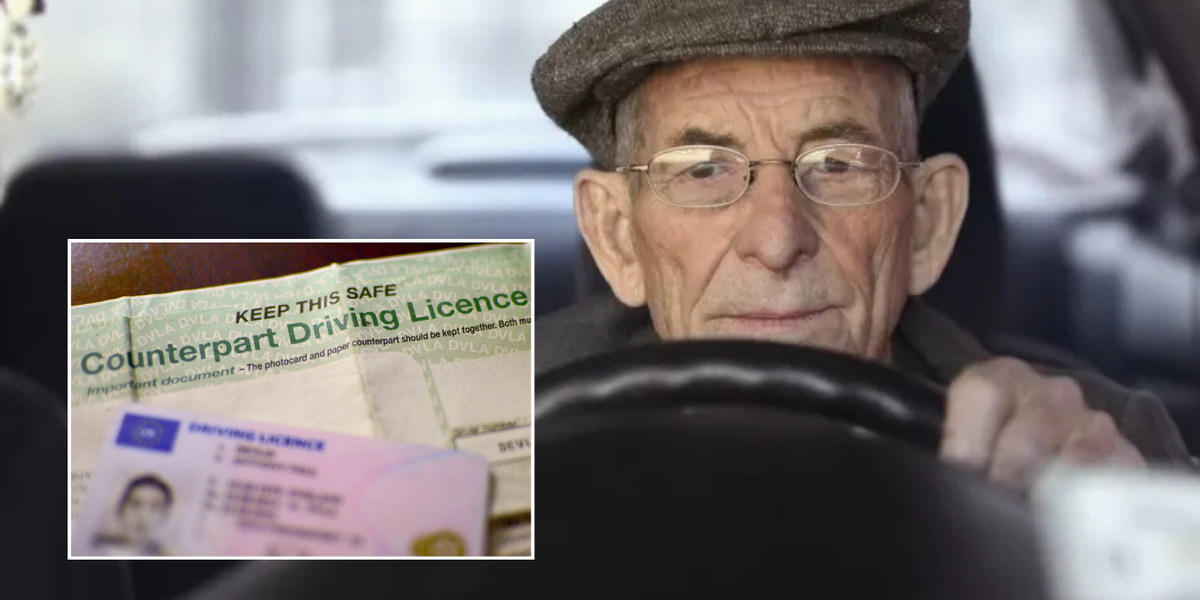Older motorists could be slapped with new restrictions as experts call for new driving licence rules to apply to all drivers who recently passed their test no matter their age.
The call for more safety measures comes after reports found that inexperienced drivers regardless of age represent huge risks on UK roads.
It follows suggestions from the AA which called on the Government to impose restrictions on drivers under the age of 2021 as part of a Graduated Driving Licence (GDL) scheme.
As part of the policy, the AA has pushed for young drivers to be subject to numerous safety restrictions including not being able to carry peer-age passengers for a minimum of six months after passing.
Do you have a story you’d like to share? Get in touch by emailing[email protected]
Experts have argued that all drivers who have recently passed their test should be made to follow new probational rules. Peter Golding, managing director at FleetCheck told Fleet News: “Our argument is that all new drivers are inexperienced and represent a risk.
“If someone doesn’t pass their test until 30, they might not have the same statistical likelihood of being involved in an accident as a 17-year-old, but it would still be arguably irresponsible for them to be immediately allowed to drive a 3.5 tonne van or a powerful car.”
The restrictions were previously been backed by MP Kim Leadbeater who introduced the Motor Vehicles (Driving Licences) (New Drivers) Bill into the Commons earlier this year.
Under her proposed rules, motorists could face restrictions for the first six months of their driving including a zero-alcohol limit and controls over the number of young passengers allowed in the vehicle.
Leadbeater told the Commons: “The Bill is not about taking away young people’s freedom or fun; it is about trying to save their lives. By giving them the opportunity to build their experience and confidence during the first six months of driving after passing their test, we can try to ensure they have a happy lifetime of driving and the future that they deserve.”
But Golding noted that older motorists should be treated the same as younger ones as there is any inexperienced driver can cause risks.
According to data from the Department for Transport, older motorists are 53 per cent more likely to be involved in serious casualties on rural roads, compared to 42 per cent for other age groups.
The most common contributory factor in serious collisions involving older drivers was failing to look properly, followed by failing to judge another person’s path or speed.
In addition to imposing restrictions on driving, the bill also proposes changes to the experience of learning to drive as well as the driving test. The changes include learning on rural roads, motorways or dual carriageways as part of the driving test.
Under the current UK licence system, young people are allowed to drive unaccompanied and with no restrictions as soon as they pass their practical driving test unlike with a motorbike where they have graduated licence.
The Association of British Insurers backed the licence bill but also agreed that the age limit should not be for under 21s and called for it to instead be extended to under 25s.
During the intermediate phase, restrictions would be placed on the number of passengers a young person can carry and the time of day they can drive. It also includes a nighttime driving restriction between 11pm and 4am during the first six months of driving.
LATEST UPDATES:
Graduate driving licence would impose six-month restrictions on newly qualified drivers
GETTY
A DfT spokesperson told GB News: “Every death on our roads is a tragedy and our thoughts remain with the families of everyone who has lost a loved one in this way.
“Whilst we are not considering Graduated Driving Licences, we absolutely recognise that young people are disproportionately victims of tragic incidents on our roads, and we are considering other measures to tackle this problem and protect young drivers.”

